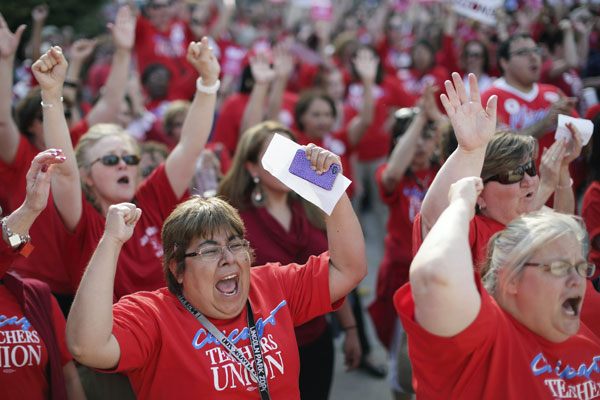The supply of elementary school teachers greatly exceeds the demand for them among public-school districts, according to data collected by Education Week.
This fact has a number of implications for education policy, but one of them—not directly mentioned in the article—stands out: If elementary-school teachers are truly “underpaid,” as teacher unions and left-leaning scholars frequently assert, it’s curious that so many people are eager to sign up for such unfair compensation!
The Heritage Foundation published a long technical report in 2011 that compared the salaries and fringe benefits for public-school teachers with the compensation received by comparable private-sector workers. We found that teacher salaries are at roughly market levels, but fringe benefits—especially generous retirement and health care plans—far outstrip what is offered in the private sector.
A simple way to corroborate these findings is to examine how popular the teaching field actually is among workers. If school districts struggle to recruit applicants, the compensation offered may be too low. But if districts are inundated with applications from qualified workers, the compensation is likely higher than it needs to be.
The Education Week article shows that the number of teachers (the supply) exceeds the number of available positions (the demand) in every state examined. The supply ranges from 6 percent higher than demand in Colorado to more than nine times higher in Illinois.
It’s not entirely clear where these supply and demand figures come from, and Education Week notes that states often have very different methods for calculating them. But the basic finding is consistent with national-level data indicating that teacher colleges regularly graduate tens of thousands more students than there are new teaching positions.
So if teachers are underpaid, why do so many people want to be teachers? Why would across-the-board pay increases—the constant demand of teacher unions—be useful if positions are already so popular?
The answer, of course, is that teachers are not underpaid in the first place. There is a better way to pay public-school teachers, and it doesn’t involve blanket raises.































